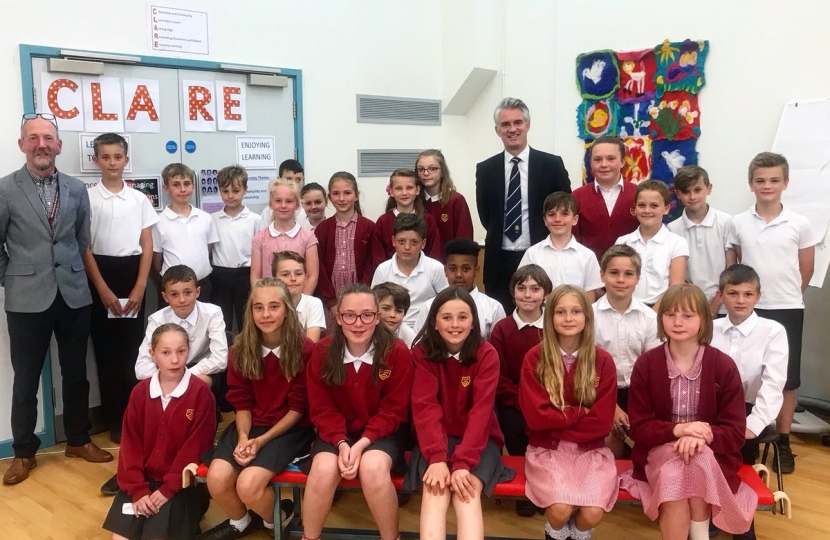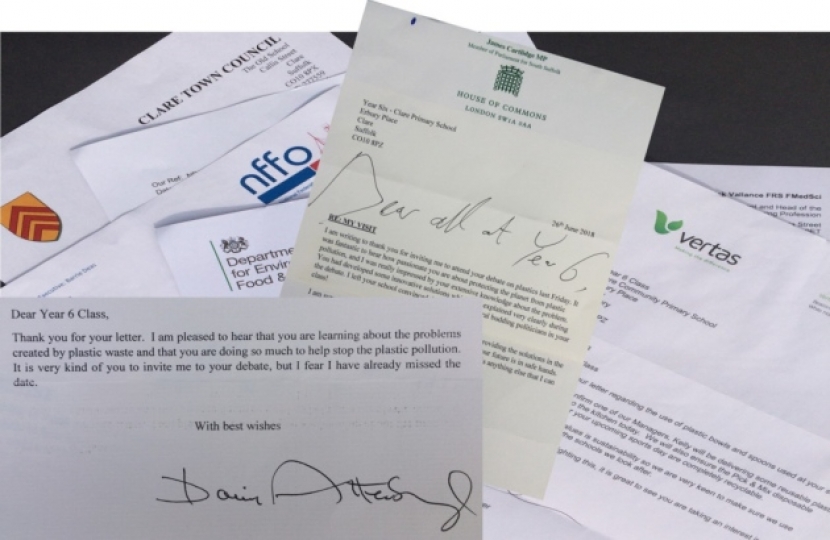Pupils in west Suffolk carrying out a project on the problem of plastic pollution received a letter from Sir David Attenborough supporting their efforts.
The Year 6 students at Clare Community Primary School kicked off their project with a debate about how the problem should be tackled and according to teacher Rob Davies came up with some innovative suggestions, such as ‘Trash 4 Cash’, a plastic bottle deposit scheme like that currently being considered by the government, and a subsidy for fishermen to reimburse them for trawling for plastic litter in the oceans instead of further depleting fish stocks.
The children penned letters to town and county councils, asking for more recycling bins to be installed next to litter bins; contacted the government to recommend paying scientists to research biodegradable alternatives to oil-based plastics; and even wrote to Sir David Attenborough.
Mr Davies said the class were “absolutely delighted” to receive a reply from the great man who wrote: “I am pleased to hear that you are learning about the problems created by plastic waste and that you are doing so much to help stop the plastic pollution.”
Another letter went to South Suffolk MP James Cartlidge, who attended the debate and later wrote back: “I am sure that some of your class will be among the people providing the solutions in the future, and your passion and interest in the issue shows that our future is in safe hands.”
Some of the children’s efforts have already had an effect - as a result of Year 6’s letter to Vertas, the school’s catering company, single-use plastic crockery and cutlery has been replaced by re-usable, washable versions.
Parents have also been asked to play their part by reducing the amount of plastic packaging in children’s lunch boxes.
Mr Davies said; “The Year 6 children will be leaving school this week, moving on to pastures new and all the excitement of a new secondary school but I am extremely proud of everything they have achieved this year, and I really hope that their involvement in this topic proves to them that hard work has many valuable benefits, and that the learning they do at school has real, tangible outcomes and can make a difference in the outside world.”


